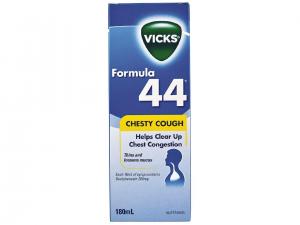Academic pharmacist Nataly Martini discusses the medical management of asthma in adults and adolescents, which has evolved to prioritise early anti-inflammatory treatment. She also explains how to improve patient outcomes by proactively identifying poor asthma control and supporting equitable access to education and treatment
Pholcodine reclassification to be introduced next month
Pholcodine reclassification to be introduced next month

The members are aware of their responsibilities but whether it stays in the New Zealand market will be an interesting challenge
FROM THE START of next month, medicine containing pholcodine must be moved off the shelves and into the pharmacist-only section.
For now, pholcodine is classified as a pharmacy-only medicine. It is one of the last cough suppressants available OTC in New Zealand and includes such brands as Duro-Tuss Dry Cough Liquid and Pholcodine Linctus.
But in July 2020, the Medicines Classification Committee (MCC) determined it should be restricted to pharmacist-only due to concerns around public safety and a lack of efficacy.
The committee decided the reclassification should not take effect for two years to give manufacturers time to prepare.
The change will come into force on 1 December when it is published in the New Zealand Gazette and from then on all pholcodine-containing medicine must be in the pharmacist-only section.
Manufacturers then have until June 2023 to ensure pharmacy OTC stock has updated labelling.
Scott Milne, executive director of the medicines manufacturers lobby group Consumer Healthcare Products NZ, says the industry is grateful for the early heads-up but is still concerned the MCC decision leaves New Zealanders with no viable OTC cough suppressant
“Whether it stays in the New Zealand market will be an interesting challenge,” Mr Milne says, adding the expected drop in sales when the products are taken off the shelves may make them financially unviable.
In addition, France’s L’Agence nationale de sécurité des médicaments et des produits de santé (ANSM) has recently banned sales of pholcodine-containing cough syrups after a report linked the product to “severe risk” of allergies to muscle relaxants during anaesthesia. This link was reported in earlier studies and was one factor in the MCC’s decision to reclassify in 2020 although at the time the evidence was viewed as inconclusive.
Mr Milne says the European report raises questions about what responsibility anaesthetists should take to ensure their patients do not take pholcodine after surgery.
“The number of people who have operations and are administered neuromuscular blocking agents afterwards is not high compared with the number of people who have a non-productive cough.
We're publishing this article as a FREE READ so it is FREE to read and EASY to share more widely. Please support us and the hard work of our journalists by clicking here and subscribing to our publication and website







